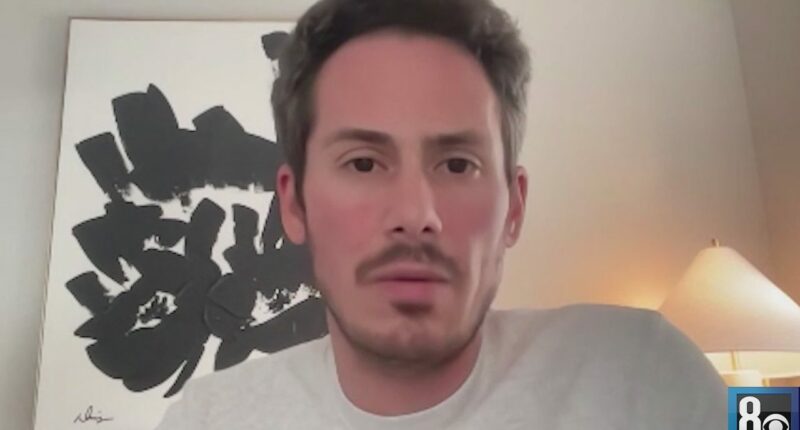Share this @internewscast.com
LAS VEGAS (KLAS) – A father said a group home he turned to in Las Vegas, to help his teen son with mental health struggles, failed him.
Noah Blumenthal told the affiliate KLAS that while Moriah Behavioral Health received thousands of dollars from his insurance and his co-pays to care for his son, his 17-year-old son Asher did not receive proper medication, counseling, and resources.
“It is just untenable that an organization like this should be around and should be allowed, I don’t even want to use the word treat children, to house them,” Noah told KLAS in a Zoom interview.
He sent his son Asher to a home on Edna Avenue near West Sahara Avenue and South Buffalo Drive in Las Vegas, run by Moriah Behavioral Health earlier this year. The company also appears to be linked to Eden Treatment and Ignite Teen Treatment. Records tie these businesses to five group homes in Las Vegas.

“Looking back, there were a lot of red flags,” Asher told KLAS in a Zoom interview.
The teen said he suffers from severe anxiety, which has led to hospitalizations. Noah told KLAS he believed Asher would receive the care he needed, such as medication and counseling, at Moriah Behavioral Health, which accepted their insurance. Noah provided documentation showing Moriah Behavioral Health billed insurance $4,000 per day, while insurance paid a discounted rate of $1400 per day most of the time. Noah received a bill for $280 per day co-pay for the remainder of the time, according to the documentation he provided.
Soon after Asher boarded a plane to Nevada, from where the family lives in New York, Noah said he could not reach his son because Asher had no access to his cell phone.
Noah claimed both a healthcare provider and Blue Cross Blue Shield told him Asher was not doing well, while Mendi Baron, the CEO of Moriah Behavioral Health, told him Asher did not need his medication and then looped his legal team into the conversation.

The father decided his son needed to leave and told KLAS group home staff would not release Asher until he threatened to call police.
His father said he believes the business saw his son as a ‘cash cow.’
Asher said seven other teens were inside the home with him.
“I think a lot of them, a lot of the kids in with me, seemed to have deteriorated,” he said.
Asher is now at a provider in New York, where he and his father said he is getting the care he needs.
“A place like that should be able to help you,” the teen said.
KLAS requested an interview with CEO Mendi Baron. His attorney, Mark Hutchings, requested that the interview questions be sent ahead of time and an option to view and approve the news report before it aired; both are against KLAS’s journalistic policy.
They sent a statement saying they welcome honest feedback, some stories shared are from former clients “who were struggling deeply at the time of their stay,” and that is not uncommon for former clients who may have been placed in the facilities by their parents to place blame.
The statement also reads in part:
“While we strive to support every client and family to the best of our ability, the reality is that mental health treatment is complex. Some individuals continue to struggle after treatment, and in those moments, it’s not uncommon for blame to be placed on the treatment center particularly when treatment was initiated by parents during a time of crisis.
It should also be noted that some narratives, similar to those seen in recent high-profile documentaries, have been proven inaccurate or misleading. Many of the claims circulating online are not grounded in full or verifiable facts, but reflect personal frustration, custody battles, and painful family dynamics that our programs are not legally able to intervene in.
That said, we don’t shy away from scrutiny. We hold ourselves to the highest standards of clinical care and ethics. Our facilities are fully licensed and accredited through rigorous third-party evaluation, and we maintain ongoing oversight to ensure safety and quality.”
In a previous email, Hutchings appeared to place blame on state inspectors and said the provider has faced significant challenges in its interaction with certain state regulatory bodies.
“This is only because Moriah has been a vocal advocate for fair and transparent oversight and has consistently raised concerns about regulatory overreach that has disrupted patient care,” he wrote.









